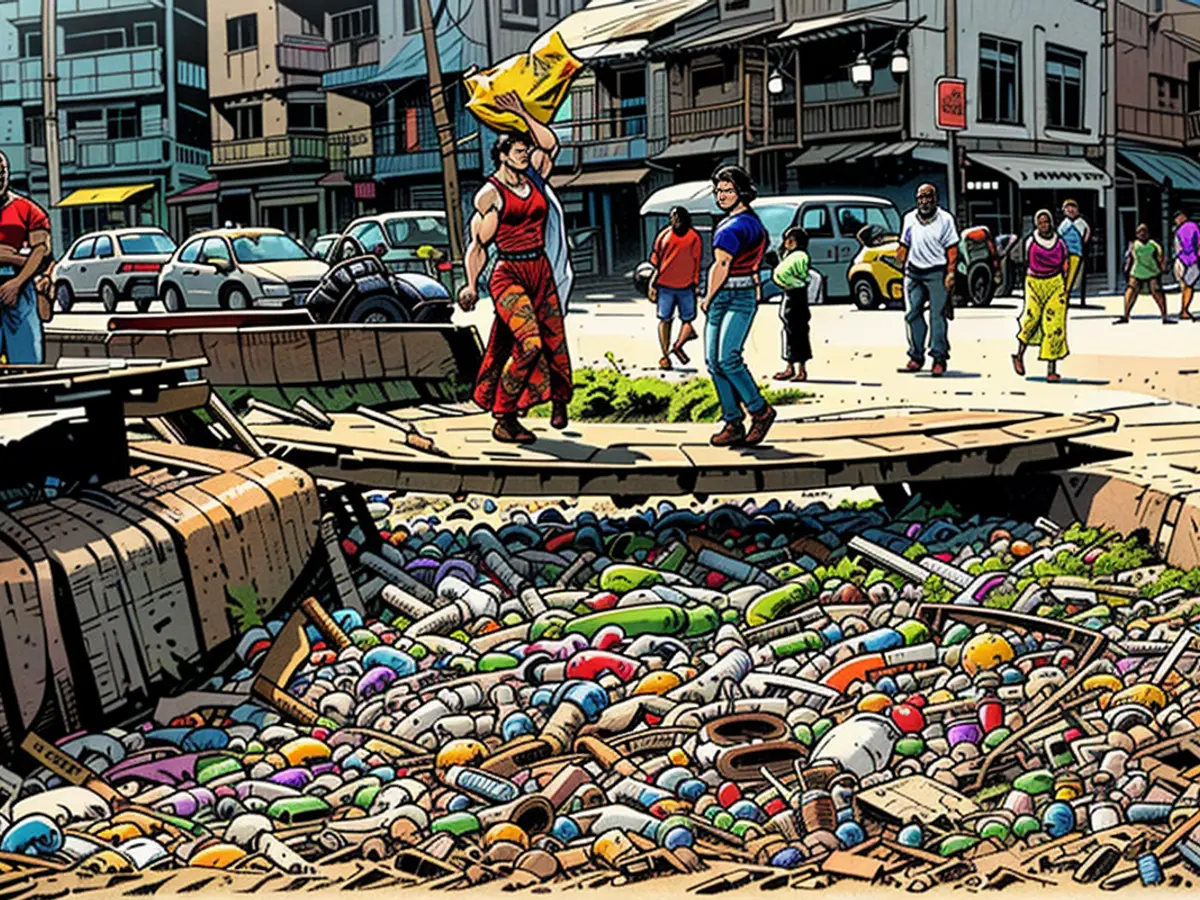Approximately 57 million metric tonnes of plastic waste find their way into the natural environment.
human-generated plastic waste pollution is a global concern, with an estimated 57 million tons of it entering the environment annually. This analysis, published in the journal "Nature," highlights that over two-thirds of this waste originates from developing countries. Researchers from the University of Leeds examined waste across more than 50,000 cities worldwide, focusing on waste that ended up in the natural environment, such as rivers and oceans, rather than waste stored in landfills or burned.
The study reveals that regions with inadequate waste management regulations, such as Southeast Asia and sub-Saharan Africa, contribute the most to this environmental pollution. The worst-affected city is Lagos, Nigeria, with significant plastic waste also present in cities like New Delhi, Luanda (Angola), and Karachi (Pakistan).
On a national level, India leads the charge with 10.2 million tons of plastic waste entering the environment annually, followed closely by Nigeria and Indonesia. Despite its environmental record criticisms, China is improving its waste management and ranks fourth on this list.
The international community reached a consensus in 2022 to develop the first legally binding treaty to tackle plastic pollution, including its impact on oceans. Negotiations for finalizing this treaty are scheduled to take place in November 2023 in South Korea.
Microplastics affect the globe
Several studies this year have focused on the prevalence of microplastics in potable water and human tissue, including vital organs like the heart, brain, and testicles. While researchers are still unclear about the potential health risks associated with microplastics, Velis, one of the study's authors, warns that "the microplastics mainly released in the Global South" are a significant concern. These microplastics can be found in diverse environments, such as Mount Everest, the Mariana Trench in the ocean, the food we consume, and the air we breathe.
Critics of the study argue that it concentrates on plastic pollution rather than addressing the overall production of plastic, and they claim that the plastic manufacturing industry is indirectly shielded from responsibility. Theresa Karlsson, an advisor to the environmental organization IPEN, stated that the extent of pollution revealed by the study is alarming, and the current levels of plastic production cannot be effectively managed. She also criticized the study for disregarding the global plastic waste trade, where developed countries often transfer their waste to developing countries.
Supporters of the plastic industry praise the research, with Chris Jahn, the head of ICCA (the industry association), noting that unregulated and uncollected waste is the main source of plastic pollution. In treaty negotiations, the industry strongly opposes limiting plastic production.
The high concentration of microplastics in the environment, particularly in developing countries, is a significant concern, as highlighted by Velis. The study underscores that unregulated waste management in regions like Southeast Asia and sub-Saharan Africa contributes to the release of microplastics.
The global plastic waste trade, where developed countries sometimes transfer their waste to developing countries, is a critical aspect that needs to be addressed in the discourse on plastic pollution.







